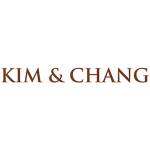Korea’s financial services are becoming increasingly inventive with blockchain. Samuel Yim, Joon Young Kim and Seung Jae Yoo of Kim & Chang look at what is next for the industry
Blockchain technology has immense potential to drive simplicity and efficiency through the establishment of new financial services infrastructure and processes in Korea. As such, blockchain will be one of many new core technologies that form the foundation for the future of the Korean financial industry. New financial services infrastructure will be built on blockchain, which will redraw processes and redefine the fundamentals of today's business models. For the next-generation financial services, blockchain will be applied in different ways to achieve bespoke benefits to every financial sector and ultimately challenge the existing system in Korea.
At the same time, Korean laws are trying to catch up with this new technology and how blockchain will be accommodated by existing Korean laws is still to be determined. Despite a lack of regulatory clarity in Korea, there has been a steady growth in blockchain-based projects by both traditional Korean financial institutions and innovative start-ups that are trying to disrupt the Korean financial industry. With the Korean government's support and its adoption by industry players, blockhain appears to be becoming an integral part of the future of the financial system. Collaboration among the incumbents – both traditional financial institutions and government – and innovators in Korea will be crucial in integrating blockchain into the Korean financial industry.
The blockchain market and regulatory environment
The Korean government has identified fintech innovation, including blockchain technology, as one of its key economic policy goals. In 2019, the government almost doubled its projected spending on blockchain development for selected Korean cities from the same period in 2018. Further, the Financial Supervisory Commission (FSC) has announced its plans to create a new department, the Financial Innovation Bureau (FIB). The FIB will spearhead "policymaking initiatives in the nation's blockchain industry" and will oversee blockchain development from a financial regulatory perspective.
As part of the Korean government's continuing efforts to promote domestic blockchain technology development, the FSC selected three blockchain companies to participate in the regulatory sandbox launched in early 2019. In the sandbox selection process, the FSC evaluated the services provided by fintech firms that are innovative and differ from existing financial services in terms of content, method and form. The selected financial service providers are given a maximum of two years to test their new financial services in an environment where they are exempted from certain existing financial regulations.
|
|
There are several pending bills at the National Assembly that would impose AML obligations for VASPs, including cryptocurrency exchanges |
|
|
As of May 2019, of the 18 fintech solutions selected for the regulatory sandbox, three incorporate blockchain technology: Directional, KOSCOM and Kasa Korea. Directional will test a blockchain-based stock lending platform that provides stock lending and borrowing services for individual investors. KOSCOM will test a blockchain-based financial service that computerises and updates the list of shareholders of non-listed small and medium-sized enterprises to support the peer-to-peer and over-the-counter trading of such stocks. Kasa Korea will test a blockchain-based financial services platform that issues and distributes mortgage-backed securities in a form of electronic securities.
Notwithstanding the support from the Korean government, Korea still has no laws or statutes that directly regulate cryptocurrency/blockchain-based services. The FSC and other regulatory bodies, however, have issued a number of press releases to the cryptocurrency/blockchain market covering, among others, initial coin offerings (ICOs) and fraudulent activities involving cryptocurrencies. Despite this, they have not yet provided any guidance on how to deal with cryptocurrency/blockchain technology from a regulatory perspective. However, the Supreme Court of Korea ruled on May 30 2018 that Bitcoin can be a "confiscatable property" but it did not provide any guidance or insight on how cryptocurrency/blockchain laws ought to develop in the future. In sum, there is no consensus or official guidance on how to classify blockchain and cryptocurrencies under the existing legal framework and regulations.
Due to the lack of regulatory clarity, in June 2019, the Ministry of Science and ICT announced that it would run the second Blockchain Regulation Improvement Study Group (Blockchain Study Group) to determine how improved regulations can ensure widespread institutional adoption of blockchain technology. The Blockchain Study Group will focus on the widespread adoption of blockchain technology in logistics and distribution, public services, healthcare, finance, and energy. The first Blockchain Study Group focused on updating regulations in areas including personal privacy, smart contracts, electronic documents, digital signatures and distributed computing systems.
Focus turns to FATF and AML
On June 21 2019, the Financial Action Task Force (FATF) adopted new rules on cryptoassets and published its updated Guidance on Virtual Assets and Virtual Asset Providers (FATF Guidance).
The FATF is an independent inter-governmental body that develops and promotes policies to protect the global financial system against threats such as money laundering and terrorist financing. Some of the notable requirements under the FATF Guidance requires virtual asset service providers (VASPs) (for example, blockchain companies, cryptocurrency exchanges, cryptocurrency wallet providers, etc.) to: "obtain, hold, and transmit required originator and beneficiary information, immediately and securely when conducting [virtual asset] transfers". In essence, it will require VASPs to provide each other with information about their customers for each crypto transfer. Specifically, VASPs would need to collect and share the name of the sender and recipient, the account number (wallet address) of both the sender and recipient and other identifying information about the sender. Korea is a member of the FATF and is expected to adopt the FATF Guidance in whole or in part, which will have an impact on the virtual currency market by early 2020.
To date, there are no anti-money laundering (AML) regulations applicable for VASPs in Korea. As such, VASPs in Korea are not subject to AML requirements under the Act on Reporting and Use of Certain Financial Transaction Information (AML Act). There are several pending bills at the National Assembly that would impose AML obligations for VASPs, including cryptocurrency exchanges under the AML Act. Currently, AML obligations regarding cryptocurrencies are enforced through financial institutions linked with cryptocurrency exchanges.
From January 30 2018, financial institutions doing business with companies that handle cryptocurrencies (for example, cryptocurrency exchanges) must comply with the Anti-Money Laundering Guidelines for Cryptocurrencies (AML Guidelines) issued by the Korea Financial Intelligence Unit. The notable requirements in the AML Guidelines are as follows:
Real-Name verification required for fiat withdrawal from and deposit to cryptocurrency exchanges. As explained above, fiat withdrawals from and deposits to a cryptocurrency exchange are available only if the exchange user's bank account is verified under the Real Name Verification System provided by financial institutions (for example, banks). Financial institutions may decline transactions with cryptocurrency exchanges that do not comply with this requirement. It also bans minors under the age of 18 and foreigners from opening new cryptocurrency accounts.
Customer due diligence. Financial institutions must implement a due diligence process to confirm whether any of their customers are cryptocurrency exchanges. Financial institutions must verify certain additional information enumerated in the AML Guidelines by conducting due diligence of the cryptocurrency exchange at least every six months.
Suspicious transaction reports. If there is a transaction which falls under the suspicious transaction types, financial institutions must review and file a suspicious transaction report. Financial institutions must also appoint a staff member dedicated to monitoring suspicious cryptocurrency transactions.
Blockchain's prospects begin to show
Due to the Korean government's support for the adoption of blockchain technology, the financial sector is rapidly implementing blockchain-powered systems. Trade finance, banking and cross-border remittances are emerging areas that are experiencing growth in blockchain technology in Korea.
In trade finance, blockchain technology can enable real-time, multi-party tracking and management of letters of credit and faster automated settlement by simplifying operations. For example, HSBC reported that its blockchain-based application for the issuance of digital letters of credit, Voltron, reduced transaction time by 40%. HSBC has partnerships with several financial institutions around the world and is seeking to collaborate with Korean banks. Korean banks have also recognised the potential of blockchain-based platforms in trade finance and are in the process of developing their own platforms. One of the largest banks in Korea has already tested its blockchain-powered trade finance service and has completed its trial run.
|
|
Data privacy issues may arise under current Korean privacy laws and regulations that could become an obstacle to the growth of blockchain |
|
|
Major Korean banks are also adopting blockchain technology, particularly in the areas of Know Your Customer (KYC) procedures and security. For instance, Shinhan Bank is adopting blockchain technology for its loan application process. By verifying items of proof, such as certification documents and various qualifications, through a blockchain-powered platform, Shinhan Bank is expected to cut down on the time spent on the verification process and operating costs. Shinhan Bank has already successfully adopted blockchain technology to verify its customers' membership status with a Korean doctors' association. With blockchain technology, Shinhan Bank reduced the membership verification time from two to three days to almost immediately.
Another major Korean bank, KEB Hana Bank, plans to use blockchain technology via its Global Loyalty Network platform in Taiwan to enable transactions with digital cash across multiple countries through partnerships with third-party companies. KEB Hana Bank has upcoming plans to expand its presence outside of Korea through partnerships with non-banking companies. The integration of blockchain platforms is likely to increase in the future as the bank expands its blockchain-based services both regionally and globally.
Overseas remittance is another sector that can be streamlined with blockchain technology. Currently, users must go through the onerous process of supplying bank account numbers, bank names and the bank's international identification code, or swift code for overseas remittance. However, the application of blockchain technology will enable more efficient overseas money transfer via faster information sharing. Over 20 major securities companies in Korea are looking to begin the country's first blockchain-based overseas remittance service by using a private blockchain network established jointly by the Korea Financial Investment Association (KOFIA) and the industry. Although some commercial banks, such as KEB Hana, Shinhan and Nonghyup, are developing their own overseas remittance services on blockchain network, they are still in their preliminary stages, not ready to be tested. In addition, the FSC is currently reviewing a blockchain-based overseas remittance company for the next round of the regulatory sandbox.
Conundrum for data and privacy laws
The nature of blockchain technology requires data to be spread across and stored in multiple locations, in some cases globally, to secure the reliability and integrity of such data. As a result, a number of data privacy issues may arise under current Korean privacy laws and regulations that could become an obstacle to the growth of blockchain technology in the Korean financial industry.
In the case of Bitcoin, as an example, one of the core characteristics of Bitcoins is the use of pseudonymous wallet addresses. A party to any Bitcoin transaction is identified by a user's wallet address (for example, 1BvBMSEYstWetqTFn5Au4m4GFg7xJaNVN2), in which no personal information that can help identify the party in real life (such as name, sex and age) is stored. While the disclosure of all data involving Bitcoin transactions which are stored on a blockchain may achieve transparency for a transaction, one would not be able to identify any person in real life based on such data alone. Assuming the blockchain stores only the pseudonymous wallet address without any individual identifying information, it is questionable whether any of the data stored on the blockchain constitutes personal information.
Depending on the scope of its participants, a blockchain may be categorised as: (1) a public blockchain (such as Bitcoin and Ethereum), where any persons may participate on a permission-less basis; or (2) a private blockchain, where participation is limited to a number of persons on a permissioned basis and with authorised access. For private blockchains, as the participants operate and manage the blockchain themselves, they would be obliged to comply with the requirements of the Personal Information Protection Act (PIPA). As such, in respect of any personal information being processed in the blockchains, the participants in the private blockchain could be characterised as "personal information controllers" under the PIPA. For public blockchains, however, it is unlikely that the PIPA requirements would apply to the unspecified and multitude number of participants (for example node operators, validators, etc.) globally to a blockchain as "personal information controllers", as it would be too onerous to impose Korean privacy laws on them.
Also, if a person intends to provide any personal information about another person to a third party, the PIPA will require that such a person first seek and obtain consent from the owner of the personal information. As blockchain technologies require all data to be spread across and stored in multiple locations, any new participant to a blockchain would be granted with access to all data previously stored in the blockchain, which might include certain personal information. In such a case, sharing personal information with a new participant to the blockchain could trigger the abovementioned consent requirement under the PIPA. In practice, however, it would be very difficult to seek and obtain consent from all the owners of the personal information previously stored in the blockchain.
Finally, any person who has collected personal information is required to destroy that personal information once it has been used for the purpose which prompted its collection or after the lapse of any agreed upon holding period. However, it may be practically difficult to destroy any personal information stored in a blockchain due to the technical nature of a blockchain. Blockchain technology is designed to secure the integrity and irreversibility of any data stored in the blockchain. As such, this makes it almost impossible to make any data alterations or deletions. Accordingly, it would be a challenge to comply with the obligation to destroy another person's personal information as prescribed under the PIPA if personal information were stored in a blockchain.
The secret to integrating blockchain
Successful integration of blockchain technology in the Korean financial industry will require a careful balancing of the following factors: infrastructure replacement; legal, regulatory and governance frameworks; and managing competing interests. Replacing the existing financial infrastructure by blockchain will require significant time and investment, as the current regulations, standards of practice and legal and liability frameworks must be appropriately updated to reflect the new infrastructure.
Aligning key stakeholders for collective action may require a difficult balancing of interests in the face of diverging goals. However, the successful application of the technology will enable scalable infrastructure fabrics, industry-wide solutions and standardised processes. This is the unchained potential of blockchain technology in Korea.
About the author |
||

|
|
Samuel Yim Senior foreign attorney, Kim & Chang Seoul, South Korea T: +82 2 3703 1543 F: +82 2 737 9091/9092 Samuel Yim is a senior foreign attorney in Kim & Chang's fintech group and his practice focuses primarily on blockchain and cryptocurrency matters. He regularly represents: token sellers; cryptocurrency exchanges; hedge and private equity funds; token marketers and broker-dealers; funds interested in trading digital assets; major global investment banks; financial institutions and asset managers; and others. He has advised foreign and domestic clients on major industry-defining matters such as, among others, ICOs, token private placements, establishing or acquiring cryptocurrency exchanges, cryptocurrency arbitrage and the establishing of cryptocurrency not-for-profit foundations. |
About the author |
||

|
|
Joon Young Kim Senior attorney, Kim & Chang Seoul, South Korea T: +82 2 3703 1824 F: +82 2 737 9091/9092 Joon Young Kim is a senior attorney at Kim & Chang. His practice focuses on e-finance & fintech, insurance, corporate governance, mergers & acquisitions and foreign direct investment. According to the publication Asian Legal Business, Joon Young "spearheads Kim & Chang's e-finance and fintech team […] and advises extensively on legal issues relating to the latest technological innovations, such as blockchain technology, cryptocurrency and cloud computing". His expertise and experience has been recognised by industry experts. He was named in Asian Legal Business' 40 Under 40 list in 2018 and was recognised among the "40 of the brightest young legal minds". |
About the author |
||

|
|
Seung Jae Yoo Senior foreign attorney, Kim & Chang Seoul, South Korea T: +82 2 3703 1566 F: +82 2 737 9091/9092 Seung Jae (SJ) Yoo is a senior foreign attorney in Kim & Chang's finance department and his practice focuses primarily on e-finance and fintech, cross-border M&A, capital markets and other finance-related matters. SJ has been actively involved in a number of high-profile transactions in and out of Korea including, among others, ICOs, token private placements and transactions involving cryptocurrency exchanges. SJ regularly represents both foreign and domestic clients in blockchain and cryptocurrency industry. |




